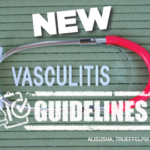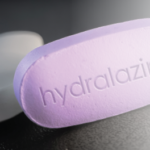Q: Was there any controversy about the recommendation against the routine use of plasma exchange?
Dr. Chung: Plasma exchange has been looked at in two randomized trials: MEPEX and PEXIVAS; the MEPEX study pushed the PEXIVAS study to be developed.10,11 The MEPEX study showed a benefit for plasma exchange, but enrolled a very sick population—patients with a serum creatinine greater than 5.7 or 5.8 mg/dL and new-onset disease. PEXIVAS enrolled a population that wasn’t nearly as sick and didn’t have the same entry criteria. Because of that, questions have been raised about whether plasma exchange may benefit patients who have worse renal involvement.
When we first considered this recommendation, we had limited data from the PEXIVAS trial. Once that trial was published, we considered this recommendation again. When the data were reevaluated, there was a suggestion the benefit was different depending on the patient’s risk of end-stage renal disease (ESRD). If someone was at high risk of ESRD, the data suggested the benefit was much stronger than for those who were at low risk. A group of nephrologists conducted a more detailed analysis and came up with similar conclusions.
Plasma exchange does have risks. One that was hinted at in the PEXIVAS study and came out in our meta-analysis was a potential increased risk of infection. You have to weigh the potential increased risks against the potential benefit.
Q: What about people with severe DAH? The PEXIVAS trial included very few patients with DAH, but they are the patients who become very ill and wind up in the intensive care unit. We give them pulse steroids, we give them rituximab or cyclophosphamide, and then we start to get nervous because they’re not getting better. I think a lot of people reach for a plasma exchange when that happens, including myself.
Dr. Chung: When we look at the evidence, there doesn’t seem to be a decrease in mortality with plasma exchange or a decrease in relapse rates using plasma exchange for DAH, so we didn’t recommend the routine use of plasma exchange for those patients. But I do think it’s reasonable to use plasma exchange when things are not going in the right direction. And if you’ve administered high-dose glucocorticoids and induction therapy, and you’re pretty sure the patient’s not infected, it’s reasonable to start thinking about things like plasma exchange.
From the guideline—Recommendation: For patients with GPA/MPA that is refractory to remission induction therapy, we conditionally recommend adding IV immunoglobulin (IVIG) to current therapy.

